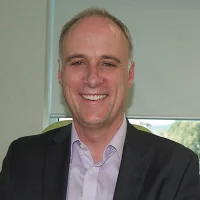Articles / Clinical Conversations: Fetal Alcohol Syndrome – A Practical Approach for GPs | Part two


writer
Clinical Psychologist/Neuropsychologist; Co-Director, Robin Winkler Clinic, UWA
Those who have been in the justice system are also at high risk, based on research by A/Prof. Carmela Pestell and her colleagues. She has been involved with FASD for decades and wants to increase awareness of this condition. Early diagnosis and intervention gives the best chance of a productive life for the person with FASD.
This is part two of this series. Read Part 1 >>
Practice points
• Any clinician that is taking a developmental history should always ask whether or not there was alcohol exposure during pregnancy.
• Children are quite individual with FASD and are at risk of a whole host of different secondary long-term outcomes. They have a lower life expectancy, they are more likely to develop substance issues themselves, they are more likely to come into contact with the justice system or develop severe mental health challenges.
• It is a myth that all children with FASD will have an intellectual difficulty; two thirds may have average to high average intelligence, but they have particular struggles in certain areas.
• An accurate diagnosis requires a multidisciplinary team approach. It is very important to tease out the child’s strengths and weaknesses and determine their unique cognitive profiles. If we know these, then we can then help tailor appropriate treatment intervention. Neuropsychological input can be particularly useful for these cases.

Alcohol Addiction Assessment and Advice

Premature Ovarian Insufficiency – The New Guidelines

Paediatric Allergic Rhinitis & Immunotherapy

Inhaler Devices

writer
Clinical Psychologist/Neuropsychologist; Co-Director, Robin Winkler Clinic, UWA
Very overestimated
Moderately/slightly overestimated
Quite accurate
Moderately/slightly underestimated
Very underestimated
Listen to expert interviews.
Click to open in a new tab
Browse the latest articles from Healthed.
Once you confirm you’ve read this article you can complete a Patient Case Review to earn 0.5 hours CPD in the Reviewing Performance (RP) category.
Select ‘Confirm & learn‘ when you have read this article in its entirety and you will be taken to begin your Patient Case Review.
Webcast TONIGHT
POTS – What You Need to Know